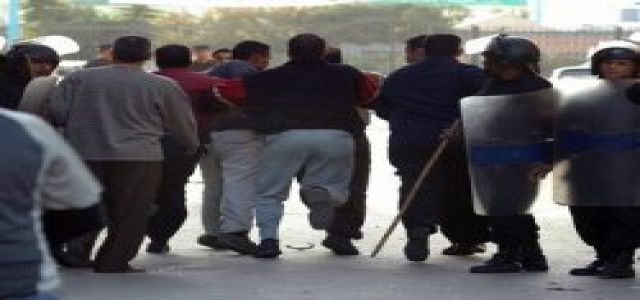|
|||||||||

Why Voters Reelect Thugs
A few weeks back Uzbekistan held an election and -- who would have guessed it -- incumbent President Islam Karimov won. He was easily reelected despite the fact that his police fired upon and massacred hundreds of unarmed Uzbeks in a May 2005 prison riot.
|
|||||||||
| Wednesday, January 9,2008 17:32 | |||||||||
|
|||||||||
|
Take the 2005 reelection of Nursultan Nazarbayev in Kazakhstan. "We would prefer for Nazarbayev to stay for another seven years -- in fact, for as long as he is living," an Uzbek pensioner from Kazakahstan told the Atlantic Monthly at the time. "If there is a new president, he will not stop stealing until his pockets are full." I heard similar rationales to explain the reelection of President Mubarak in Egypt that same year. So what does this mean for America"s funding of pro-democracy movements and opposition parties? Well, for one, we should focus on allaying these voters" fears of being bilked by an unknown opposition candidate. Many voters in newborn democracies view their leaders not as honestly elected officials who serve the people but as despots who coerced the system to benefit themselves and their friends and their friends" friends with the riches of the state. That goes in spades for oil-rich countries (see Russia, Nigeria, Gabon, etc.). If they"re voted out of office, the result is not the end of this system of corrupt rule but rather a new leader with a new batch of cronies whose pockets need filling. As distrustful as voters are of their current leaders, they"re usually more distrustful of those who covet their leaders" spots. That is why corruption becomes a self-perpetuating problem in maturing democracies. Second, we need more opposition success stories out there. I can think of just one in recent years for Africa--Liberia. The election of Ellen Johnson Sirleaf in November 2005 was a triumph for pro-democracy movements everywhere. For the post-Soviet space, the same might have been said for Ukrainian President Viktor Yushchenko"s win in the 2004 "orange revolution," though the aftermath was ugly. Interestingly, with the world"s attention now turned to Kenya -- hitherto an African success story amid a sea of failed states -- it is worth noting how Kenyans defied custom and voted in droves for opposition candidate Raila Odinga. What"s worrying is that the ensuing violence could leave Kenyans -- and other voters in illiberal democracies -- with the impression that a closely contested race is just not worth it. Not only are opposition candidates susceptible to filling their pockets, voters might reckon, but an electoral standoff could turn tribe against tribe, neighbor against neighbor. It would be a real tragedy if the world"s voters threw up their hands and decided that the status quo was better than taking a risk on an unknown democrat -- however empty his pockets. |
|||||||||
|
Posted in |
|||||||||
|
|||||||||
|
|
|||||||||
| Related Articles | |||||||||
|
|






